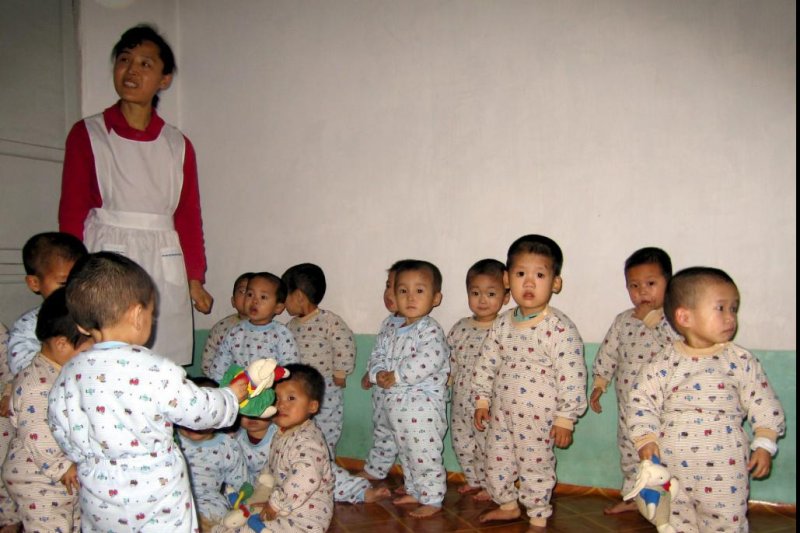North Korean babies are seen at the Hamheung Baby Home in Hamheung, in North Korea's South Hamgyeong province in March 2005. Photo by Kathi Zellweger/EPA
SEOUL, July 19 (UPI) -- A survey shows a significant gap between urban and rural areas in child malnutrition in North Korea.
According to a North Korean household survey by the United Nations Children's Fund, 32 percent of children in the rural province of Ryanggang are short for their age, while only 10 percent of children in Pyongyang are affected by the stunted growth.
UNICEF interviewed 8,499 North Korean households in 2017 to survey maternal and children's health and related areas such as sanitation and drinking water. The 2017 DPR Korea Multiple Indicator Cluster Survey report was released last month, eight years after since the last one in 2009.
The survey found that one in five children are short or weigh less than normal in North Korea, although the national rate of malnutrition dropped from 28 percent in 2012 to 19 percent in 2017.
The nutritional status for North Korean children appears to be better than that of other developing countries. Child malnutrition rate is 36 percent in Bangladesh; 32 percent in Cambodia and 38 percent in India, according to Hong Jae-hwan, a researcher at the Korea Institute for National Unification.
Hong said North Korea has had faster growth in agricultural production recently along with improvement in economic conditions. As the country has long put emphasis on public health and education, it must have achieved some improvement in maternal nutrition and hygiene as well, according to his report released on Thursday.
The UNICEF survey discovered regional inequalities in the use of well-managed sewer system.
Ninety-nine percent of people in Pyongyang use clean sanitation facilities that separate human excreta from human contact. Only 73 percent of people in the rural province of South Hwanghae and 80 percent in Jagang province are benefited from clean sanitation.
The survey also offers an interesting glimpse of North Korean lives.
More than 98 percent of households own a television while 74 percent have a telephone.
Computer and Internet use appears to be low with 19 percent of households owning a computer and only 1 percent having an access to Internet. The survey also that 48 percent of women and 56 percent of men own a mobile phone.















